St. Patrick's Day Parade - 2017 - Video
St. Patrick's Day Parade - 2017
Bundled up or skimpily clad, few of the revelers lining parade routes and filling Irish pubs have a clue about St. Patrick, the historical figure, according to the author of St. Patrick of Ireland: A Biography.
"The modern celebration of St. Patrick's Day really has almost nothing to do with the real man," classics professor Philip Freeman, of Luther College in Iowa, said in 2009. (Take an Ireland quiz.). For starters, the real St. Patrick wasn't even Irish. He was born in Britain around A.D. 390 to an aristocratic Christian family that owned a townhouse, a country villa, and plenty of slaves. What's more, Patrick professed no interest in Christianity as a young boy, Freeman noted.
At 16, Patrick's world was turned upside down: He was kidnapped and sent overseas to tend sheep as a slave for seven years in the chilly, mountainous countryside of Ireland. (See Ireland pictures.) "It was just horrible for him," Freeman said. "But he got a religious conversion while he was there and became a very deeply believing Christian."
According to folklore, a voice came to Patrick in his dreams, telling him to escape. He found passage on a pirate ship back to Britain, where he was reunited with his family.
The voice then told him to go back to Ireland. "He gets ordained as a priest from a bishop, and goes back and spends the rest of his life trying to convert the Irish to Christianity," Freeman said. Patrick's work in Ireland was tough—he was constantly being beaten by thugs, harassed by Irish royalty, and admonished by his British superiors. After he died on March 17, 461, Patrick was largely forgotten. But slowly, mythology grew around Patrick, and centuries later he was honored as the patron saint of Ireland, Freeman noted. (Related: "St. Patrick's Day Fast Facts: Beyond the Blarney.")
According to St. Patrick's Day lore, Patrick used the three leaves of a shamrock to explain the Christian holy trinity: the Father, the Son, and the Holy Spirit. Today, St. Patrick's Day revelers wear a shamrock. Trifolium dubium, the wild-growing, three-leaf clover that some botanists consider the official shamrock, is an annual plant that germinates in the spring. Other three-leaf clovers, such as the perennials Trifolium repens and Medicago lupulina, are "bogus shamrocks," according to the Irish Times. John Parnell, a botanist at Trinity College in Dublin, said in 2010 that Trifolium dubium is the most commonly used shamrock today, which lends credence to the claims of authenticity.
However, he added, the custom of wearing a shamrock dates back to the 17th and 18th centuries, and "I know of no evidence to say what people then used. I think the argument on authenticity is purely academic—basically I'd guess they used anything cloverlike then." What's more, botanists say there's nothing uniquely Irish about shamrocks. Most clover species can be found throughout Europe.
http://news.nationalgeographic.com/news/2014/03/140314-saint-patricks-day-2014-culture-nation-ireland/
Area:
Central / El Paso High
Source:
Rudy Reyes from KFOX
Uploaded by:
El Paso Museum of History
St. Patrick's Day Parade - 2017 - Video
St. Patrick's Day Parade - 2017
Bundled up or skimpily clad, few of the revelers lining parade routes and filling Irish pubs have a clue about St. Patrick, the historical figure, according to the author of St. Patrick of Ireland: A Biography.
"The modern celebration of St. Patrick's Day really has almost nothing to do with the real man," classics professor Philip Freeman, of Luther College in Iowa, said in 2009. (Take an Ireland quiz.). For starters, the real St. Patrick wasn't even Irish. He was born in Britain around A.D. 390 to an aristocratic Christian family that owned a townhouse, a country villa, and plenty of slaves. What's more, Patrick professed no interest in Christianity as a young boy, Freeman noted.
At 16, Patrick's world was turned upside down: He was kidnapped and sent overseas to tend sheep as a slave for seven years in the chilly, mountainous countryside of Ireland. (See Ireland pictures.) "It was just horrible for him," Freeman said. "But he got a religious conversion while he was there and became a very deeply believing Christian."
According to folklore, a voice came to Patrick in his dreams, telling him to escape. He found passage on a pirate ship back to Britain, where he was reunited with his family.
The voice then told him to go back to Ireland. "He gets ordained as a priest from a bishop, and goes back and spends the rest of his life trying to convert the Irish to Christianity," Freeman said. Patrick's work in Ireland was tough—he was constantly being beaten by thugs, harassed by Irish royalty, and admonished by his British superiors. After he died on March 17, 461, Patrick was largely forgotten. But slowly, mythology grew around Patrick, and centuries later he was honored as the patron saint of Ireland, Freeman noted. (Related: "St. Patrick's Day Fast Facts: Beyond the Blarney.")
According to St. Patrick's Day lore, Patrick used the three leaves of a shamrock to explain the Christian holy trinity: the Father, the Son, and the Holy Spirit. Today, St. Patrick's Day revelers wear a shamrock. Trifolium dubium, the wild-growing, three-leaf clover that some botanists consider the official shamrock, is an annual plant that germinates in the spring. Other three-leaf clovers, such as the perennials Trifolium repens and Medicago lupulina, are "bogus shamrocks," according to the Irish Times. John Parnell, a botanist at Trinity College in Dublin, said in 2010 that Trifolium dubium is the most commonly used shamrock today, which lends credence to the claims of authenticity.
However, he added, the custom of wearing a shamrock dates back to the 17th and 18th centuries, and "I know of no evidence to say what people then used. I think the argument on authenticity is purely academic—basically I'd guess they used anything cloverlike then." What's more, botanists say there's nothing uniquely Irish about shamrocks. Most clover species can be found throughout Europe.
http://news.nationalgeographic.com/news/2014/03/140314-saint-patricks-day-2014-culture-nation-ireland/
Area:
Central / El Paso High
Source:
Rudy Reyes from KFOX
Uploaded by:
El Paso Museum of History
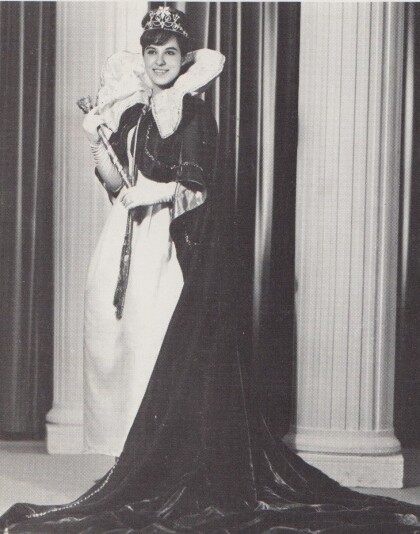
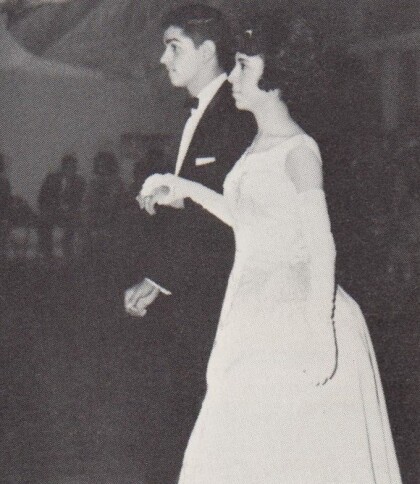
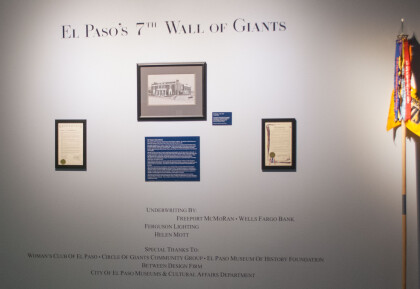
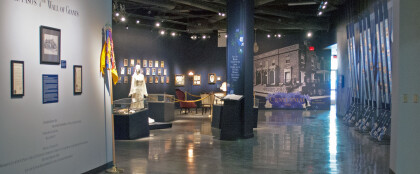
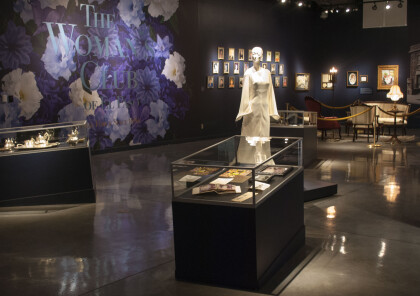
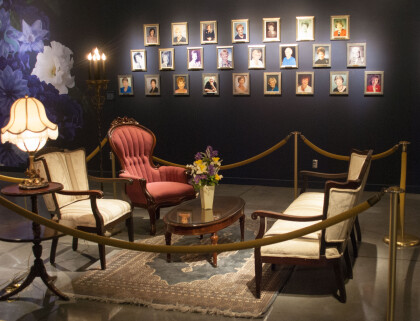




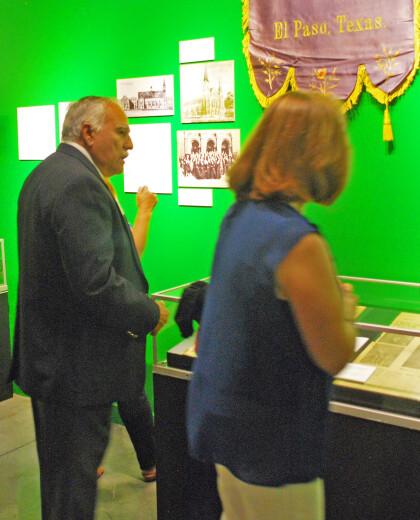
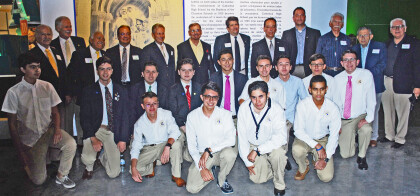
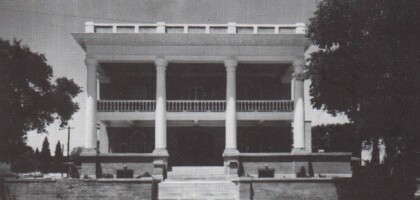

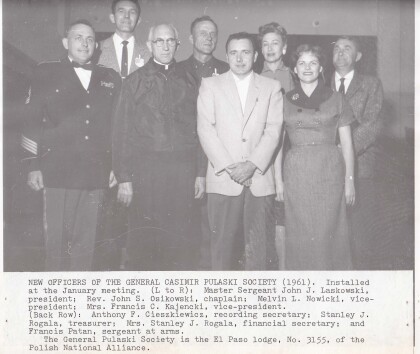





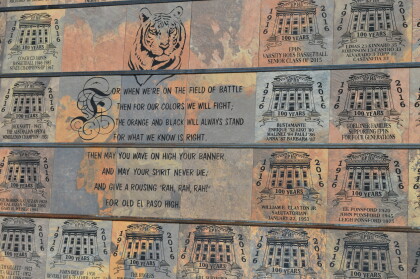
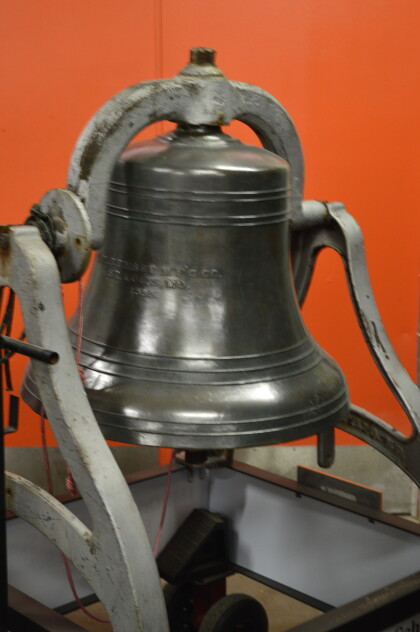

Comments
Add a comment